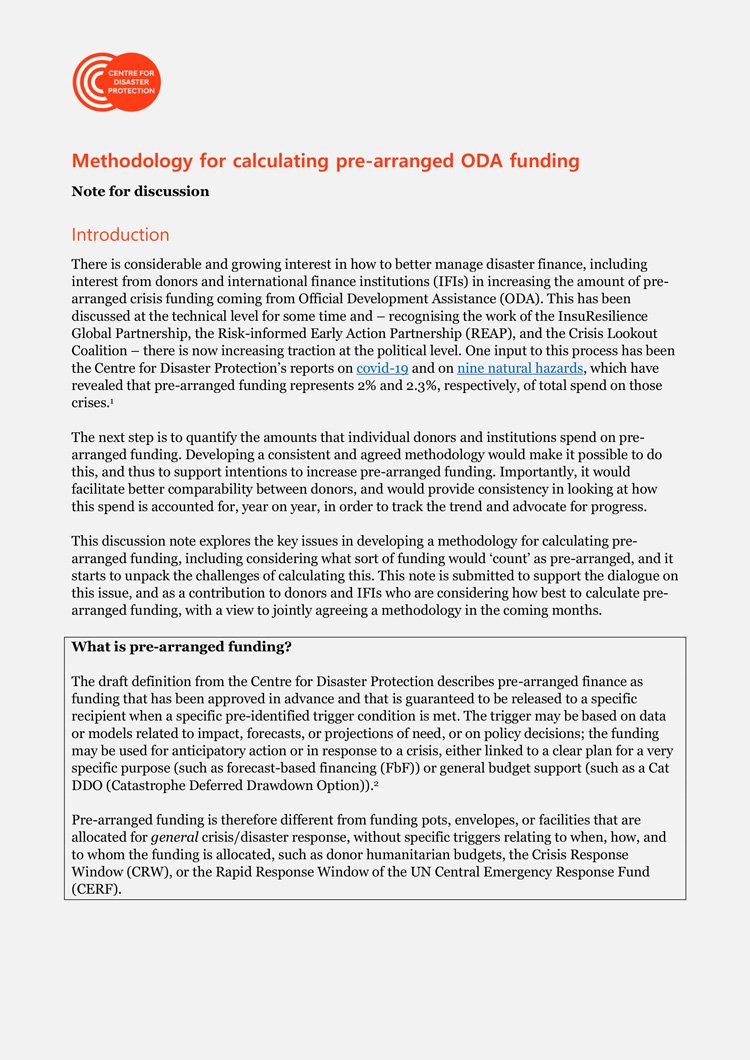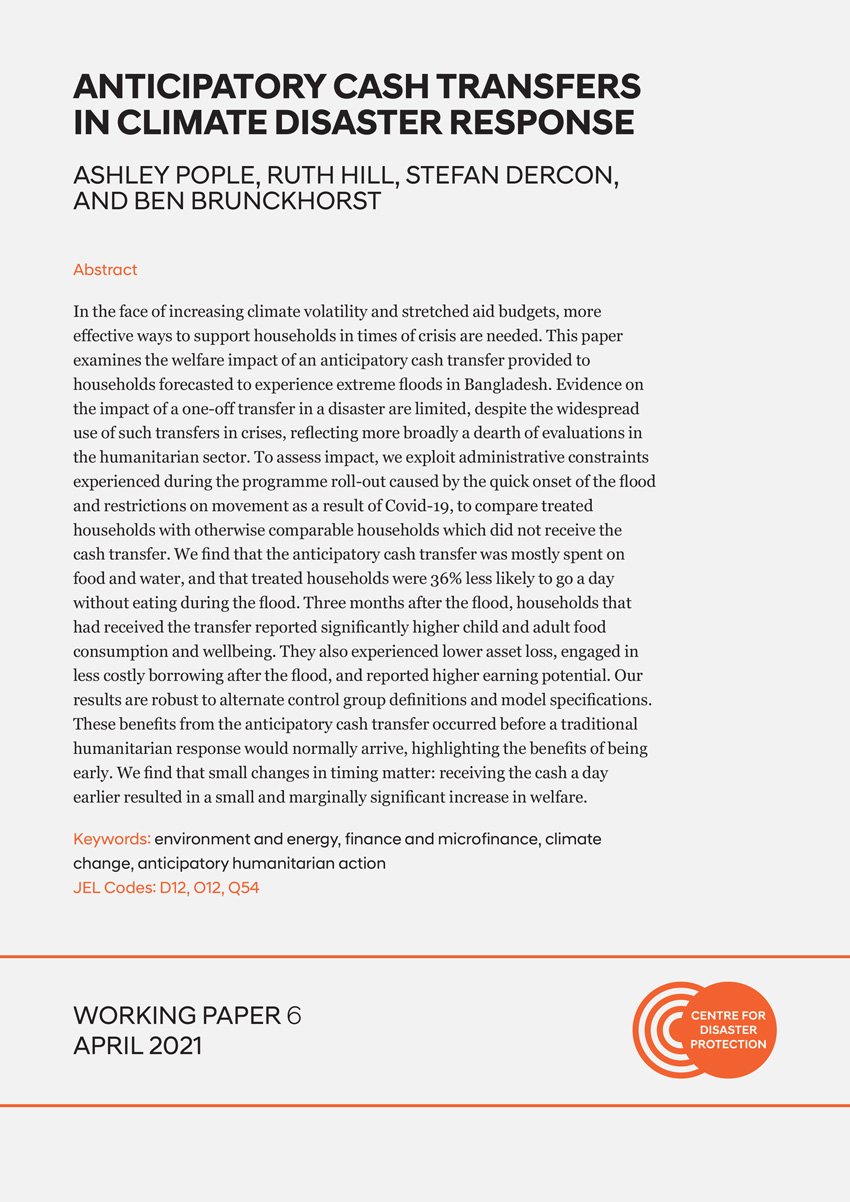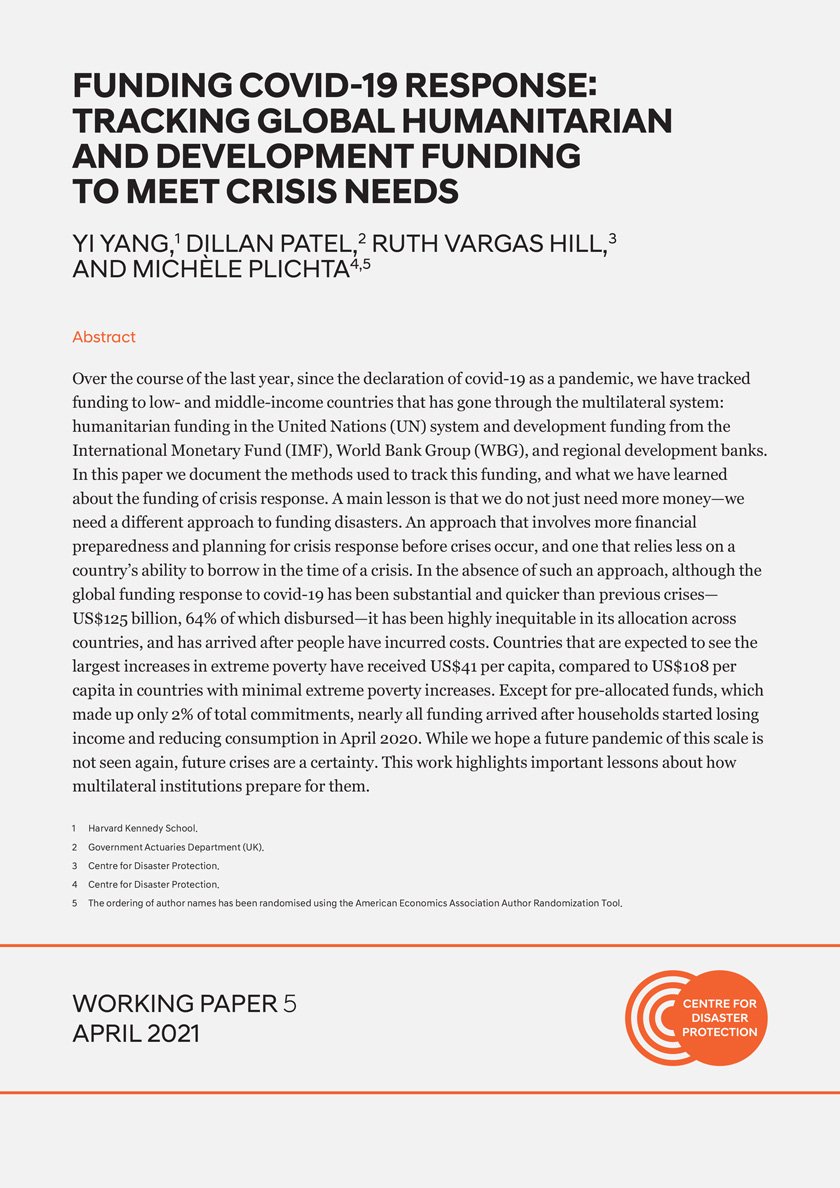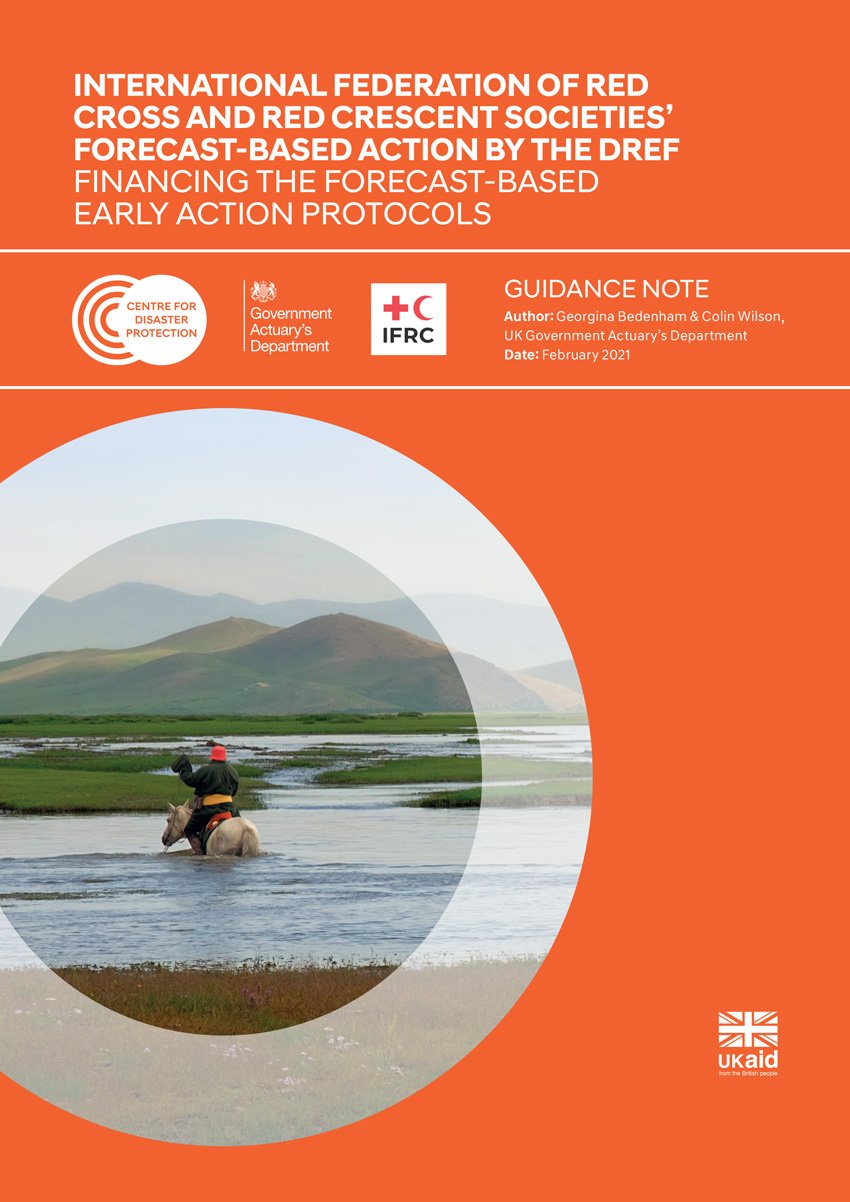
PUBLICATIONS CENTRE

METHODOLOGY FOR CALCULATING PRE-ARRANGED ODA FUNDING
We explore the key issues in developing a methodology for calculating pre-arranged funding, including what sort of funding would ‘count’ as pre-arranged, and starts to unpack the challenges of calculating this. This note supports the dialogue on this issue, and as a contribution to donors and IFIs who are considering how best to calculate pre-arranged funding.

WHAT DO WE KNOW ABOUT PREPARING FINANCIALLY FOR DISASTERS? AN ASSESSMENT OF THE EVIDENCE GAP
A strong body of evidence provides a compelling case that the current policy response to disasters—sudden, calamitous events that cause losses that exceed a community’s or society’s ability to cope using its own resources—is inadequate. This brief reviews the evidence on the welfare impacts of proactive approaches to setting up finance for disaster response.

THE IMPACT OF PRE-ARRANGED DISASTER FINANCE: EVIDENCE GAP ASSESSMENT
This paper examines the evidence on how to prepare better for disasters, specifically the evidence on the welfare impacts of interventions that pre-arrange finance for disaster response. We find that the quality of evidence is mixed across this space.

ANTICIPATORY CASH TRANSFERS IN CLIMATE DISASTER RESPONSE
In the face of increasing climate volatility and stretched aid budgets, more effective ways to support households in times of crisis are needed. This paper examines the welfare impact of an anticipatory cash transfer provided to households forecasted to experience extreme floods in Bangladesh.

FUNDING COVID-19 RESPONSE: TRACKING HUMANITARIAN AND DEVELOPMENT FUNDING TO MEET CRISIS NEEDS
For the past year, the Centre has tracked funding via the multilateral system intended to support the covid-19 response in low- and middle-income countries. This research has highlighted the flaws in the current system which is not always able to support response where need is greatest.

ACCOUNTABILITY IN DISASTER RISK FINANCING
As disaster risk financing (DRF) matures, it needs to better understand and implement accountability—particularly towards the at-risk people it seeks to benefit. There is growing awareness of this, but application remains nascent. This working paper presents a framework for understanding accountability in this context, as well as an overview of implementation in order to stimulate and inform progress.

INTERNATIONAL FEDERATION OF RED CROSS AND RED CRESCENT SOCIETIES’ FORECAST-BASED ACTION BY THE DREF
It is well known that in the event of a disaster, the speed of response is key. It is increasingly recognised that precommitment, readiness preparations, and forecast-based action can dramatically improve effectiveness. This report examines the alternative options that may be available to the International Federation of Red Cross and Red Crescent Societies (IFRC) when funding its Early Action Protocols (EAPs) through the Forecast-based Action by the DREF (FbA by the DREF)
